Mohammed Abdallah: Leaked IS document helps convict Manchester man
- Published
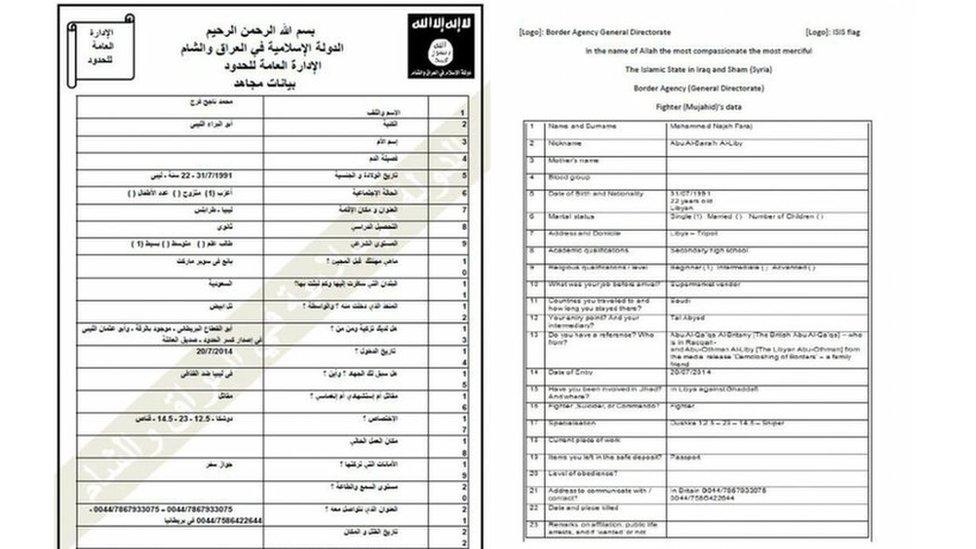
Abdallah's IS registration document was translated into English and analysed by detectives
A leak of registration documents filled out by recruits to the so-called Islamic State group in Syria has led to the conviction of a British man on terrorism offences.
The trial of Mohammed Abdallah at the Old Bailey threw light on a broad network of friends involved in fighting overseas that was associated to the Manchester Arena bomber Salman Abedi.
Abdallah, 26, is the first person to be convicted of being an IS member on the basis of one of the leaked documents.
He travelled to the war zone in July 2014, only to leave weeks later.
What was the case against him?
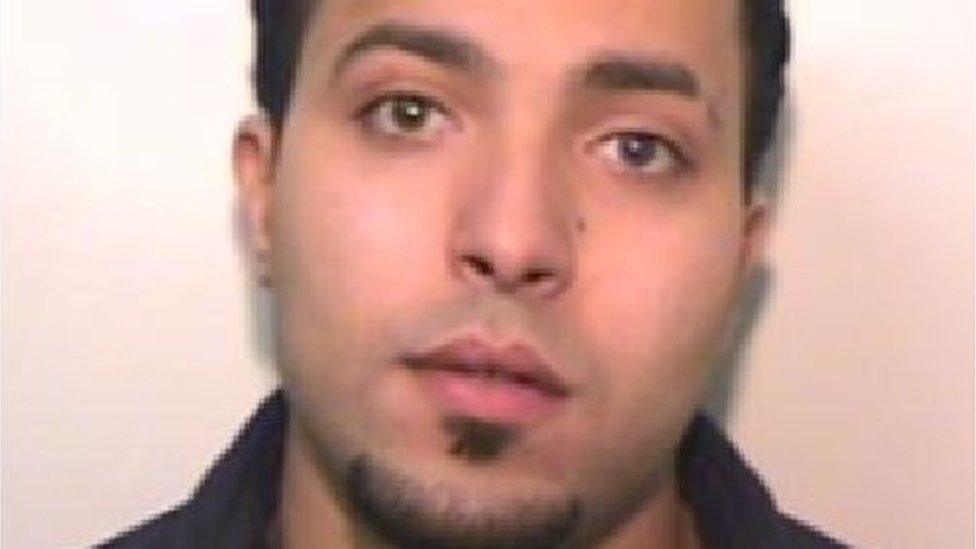
Mohammed Abdallah will be sentenced on Friday
The jury heard Abdallah travelled to Syria via Turkey three years ago and the prosecution alleged he had filled out an IS registration document on his arrival.
The document, part of a trove of files later passed to reporters by a defector, stated that the former supermarket worker had experience with both a heavy machine-gun and as a sniper.
The jury heard the defendant was assisted by his younger brother, Abdalraouf Abdallah, who is already in prison in the UK for helping other members of the same network get to Syria.
Social media exchanges showed some of £2,000 wired to Mohammed Abdallah in Turkey by his father in Manchester went to buy an AK47 rifle. There was no suggestion in court that he knew of his sons' involvement in the Syrian conflict.
How did the brothers become involved in fighting?
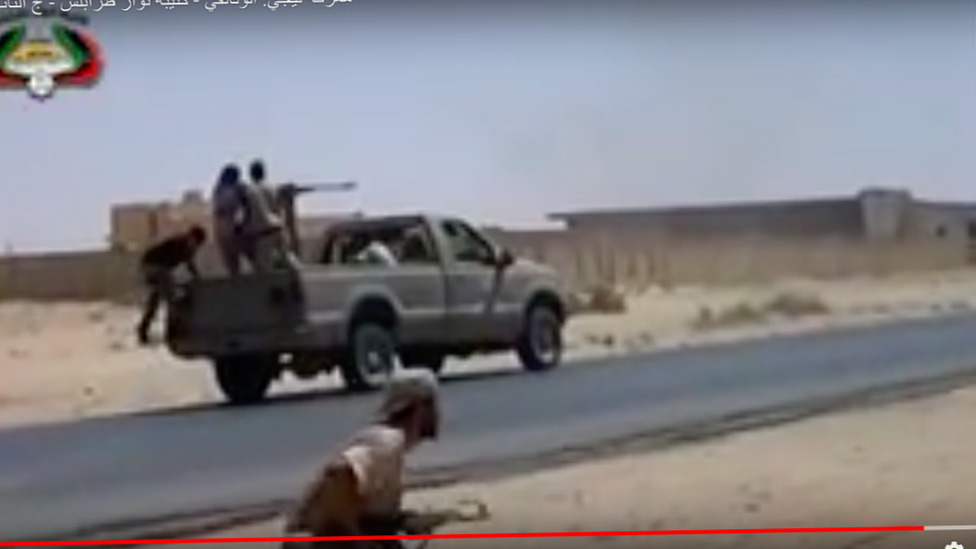
Mohammed Abdallah climbing into a truck in the Libyan revolution
The Abdallah brothers were from a Libyan family in Manchester, one of many in the city who had fled to the UK when their parents were persecuted as political opponents of the now dead dictator Colonel Muammar Gaddafi.
When the Libyan revolution erupted in early 2011, the brothers left Britain alongside many others to help liberate their parents' country. They joined a paramilitary unit associated with the LIFG, the main Islamist revolutionary group.
During one battle, Abdalraouf Abdallah was shot in the back, leaving him paralysed from the waist down.
Prosecutors said that when he was no longer able to fight and stuck at home in Manchester, he decided to play a key role in helping friends reach Syria as interest grew in overthrowing President Assad.
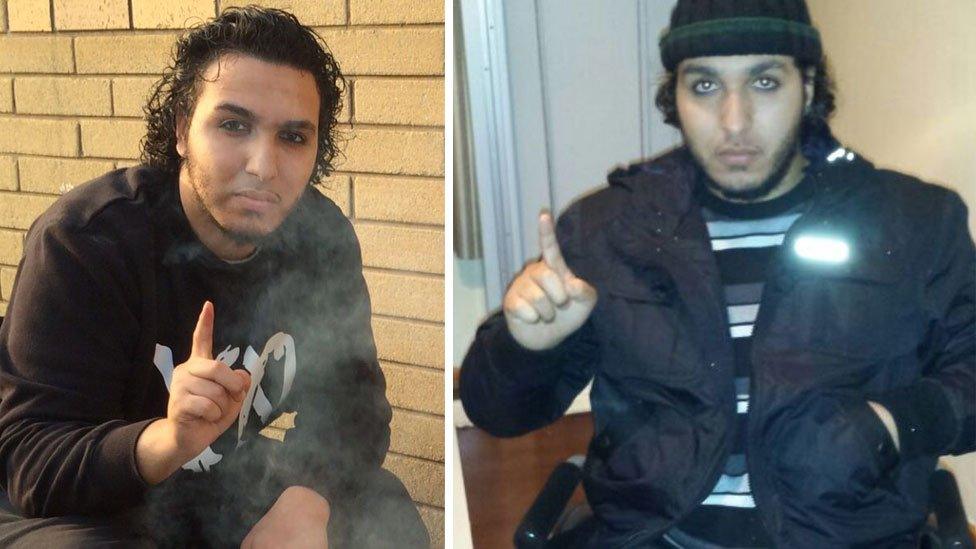
Abdalraouf Abdallah has been in a wheelchair since he was injured in Libya at the age of 18
Abdalraouf Abdallah was convicted in 2016 for preparing acts of terrorism by helping friends travel.
During his trial, he talked frankly about supporting the armed overthrow of President Assad, but denied specifically supporting the Islamic State group, even if other members of his network had done so.
Who was in this network?
The separate prosecutions of the Abdallah brothers both heard that a key member of the network was a former RAF serviceman, Stephen Gray, also known as Mustafa, who is now in jail.
Prosecutors said he wanted to enter Syria alongside Mohammed Abdallah, Raymond Matimba, a former drug dealer who found religion and another Libyan, Nezar Khalifa, who lived in the same part of south Manchester.
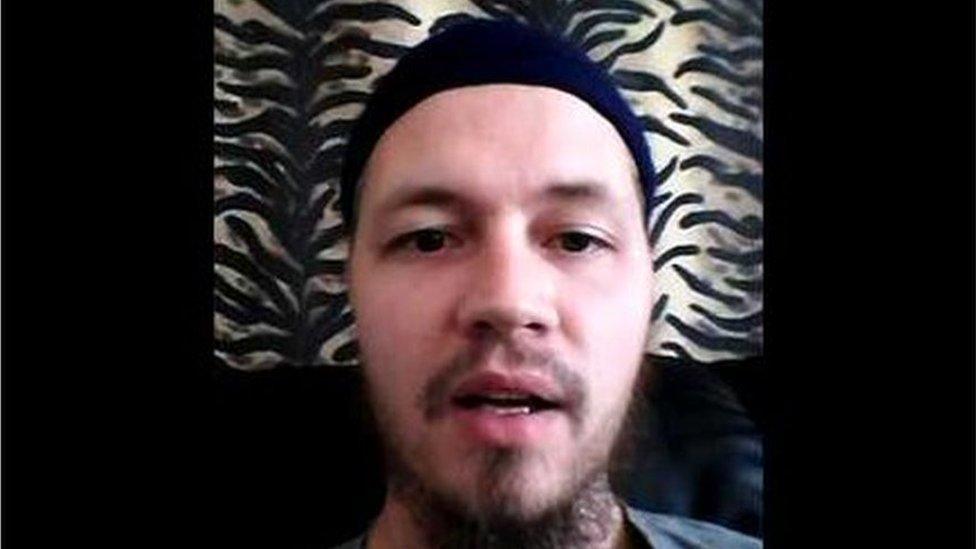
Stephen Gray, a former RAF serviceman, is now in jail
Mohammed Abdallah had been largely living and working in Libya after fighting in the revolution.
But after initially returning to Manchester, he left again with Khalifa - and the pair then flew to Turkey. Matimba and Gray had flown from Manchester to meet them there - but the former RAF man was stopped by Turkish security officials and sent back.
Matimba entered Syria with the other two and made it to the so-called IS capital, Raqqa.
He later shared pictures of the city and a video emerged later showing him associating with other British fighters including the hostage-killer 'Jihadi John'.
Abdallah's referees
At the time, volunteer fighters could only join the Islamic State group by providing the name of a referee already known to commanders. Abdallah's entry form provided two.
One was Raphael Hostey, who used the nom de guerre Abu Qa'qa al-Britani. He was later described by a British judge as an "inspirational figure" who had sponsored others from Manchester and elsewhere to join him. He was killed in May 2016.
The second sponsor named by Abdallah was Abu Othman al Libi. His real name is Salem Musa Youssef Elkhafaifi, a Libyan dissident in his 40s who once lived in Manchester.
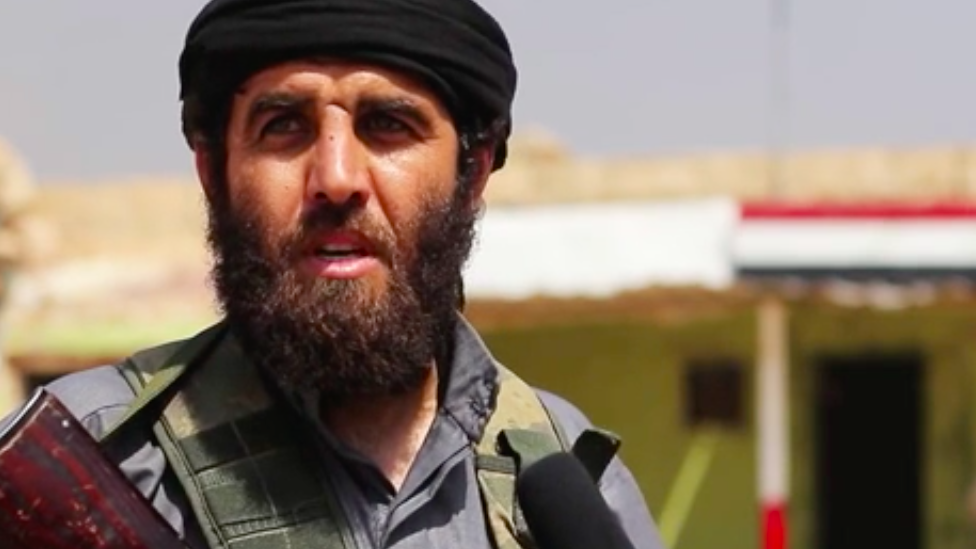
Abu Othman al Libi was named as a "family friend" in the form
He left the city to fight in the Libyan revolution - and from there went to join IS in Syria.
He featured in its key 2014 video released when the group claimed to have formed a new state.
The form described Abu Othman al Libi as a "family friend" - but during his trial Mohammed Abdallah denied ever hearing of him.
What did Mohammed Abdallah do in Syria?
During his evidence, Mohammed Abdallah was assisted by a specialist intermediary after the judge ruled he needed help following some questions.
He said that not only was he not religious, unlike his brother, but he drank heavily and used drugs. He spoke slowly and sometimes struggled to provide clear answers.
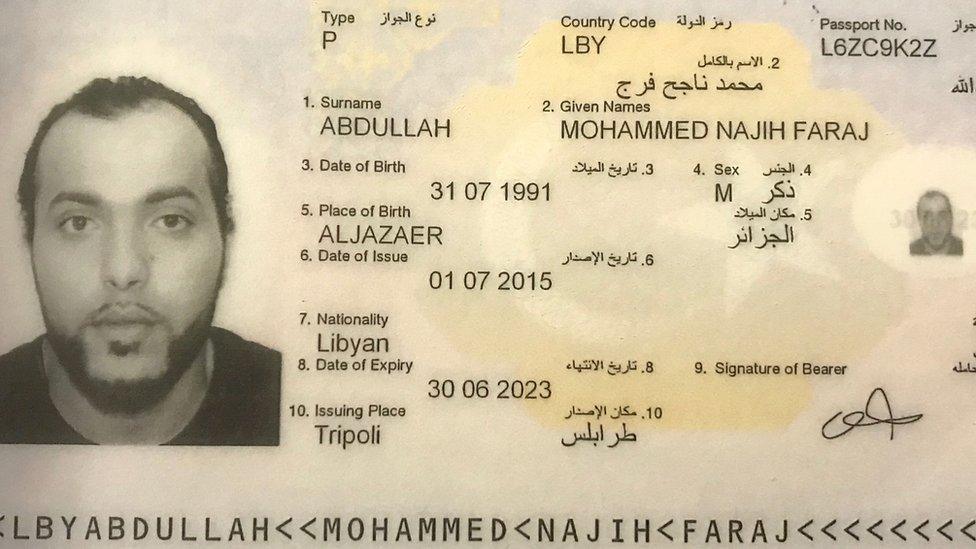
Mohammed Abdallah, who has dual Libyan-British citizenship, denied joining Islamic State
Abdallah left school with no qualifications and a low reading age and drifted in and out of employment.
After his brief part in the Libyan revolution, he said he spent most of his time "chilling" smoking cannabis while occasionally working as a security guard for the new government.
He showed the jury pictures of himself messing around with friends on a Libyan beach.
When he returned to the UK in 2012, he began using drugs more heavily, leading to him becoming a dealer himself, an ecstasy overdose and being thrown out of home.
His brother, who had become more focused on his faith since his paralysis, would lecture him to sort out his life.
In 2014 his Libyan friend Nezar Khalifa said he wanted to go to Syria to deliver aid money to refugees on the Turkish border.
Abdallah told his trial he agreed to go along because it would be a change of scenery - but insisted he had no idea he would end up in IS territory.
He told the jury it soon dawned on him he was in the wrong place.
'Refused to take IS oath'
He, Khalifa and Matimba were taken by masked fighters who met them at the border to what appeared to be a chicken farm converted into a squalid ideological training camp for dozens of trainees.
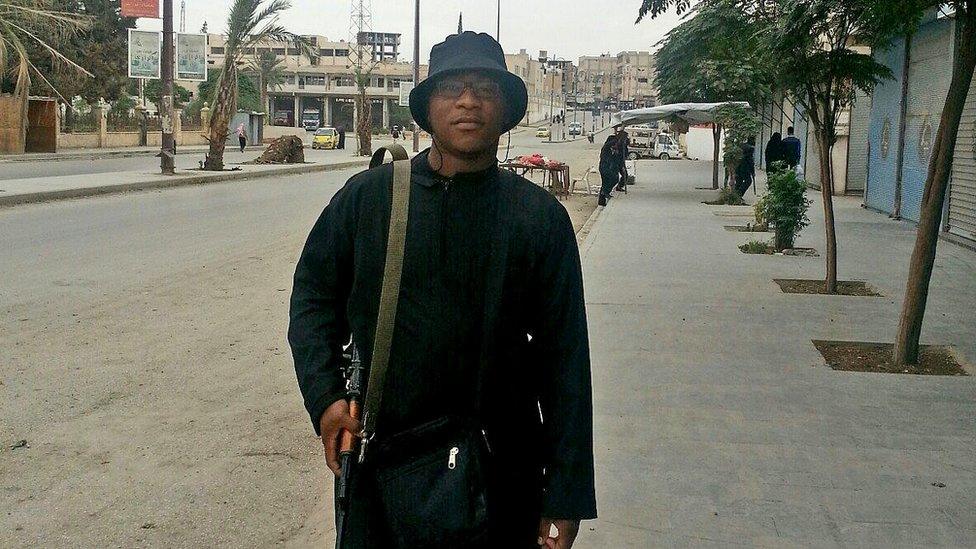
Raymond Matimba pictured in Raqqa
Fighters seized their phones and luggage and they were expected to rise early for prayers, exercise while fasting all day and follow religious lectures in which they had to watch numerous videos showing beheadings of IS enemies.
"I had a proper banging headache," Abdallah told the jury.
"Sweating, so ill. I could not get out of bed."
When the day came when the trainees were required to gather in a hall to swear an oath to the IS leader, he said he stood up and refused.
"I knew I wanted to leave this place. If I gave [an oath] and then tried to leave, 90% I'm dead. If I don't give the oath, it's 50-50. It was so emotional for me, I was the first to stand up."
Abdallah said he was marched off and ran a gauntlet of other trainees, including Raymond Matimba, hurling insults.
He was taken to a prison, where he was threatened with execution, before being thrown out of Syria with Khalifa.
Both returned to Syria. Abdallah was arrested when he arrived back in the UK in 2016.
Did Mohammed Abdallah know the Manchester bomber?
Salman Abedi killed 22 people, and himself, at the Manchester Arena when he detonated a homemade bomb.
Like Abdallah, he was from a Libyan background and we know that he was part of the broad network from the city who knew each other through either community ties or family involvement in the uprising against Colonel Gaddafi.
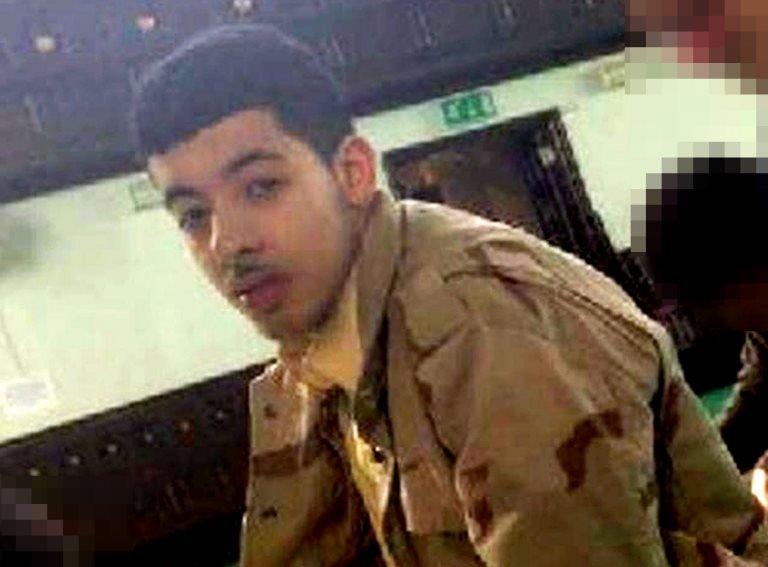
Salman Abedi was also from a Libyan background
While the defendant did not give evidence that he knew the bomber, they went to the same secondary school, albeit they were three years apart.
Abedi did, however, know the defendant's brother, Abdalraouf, because he visited him twice in prison in March this year.
The following month, Abedi left the UK for Libya and returned to Manchester four days before his attack.